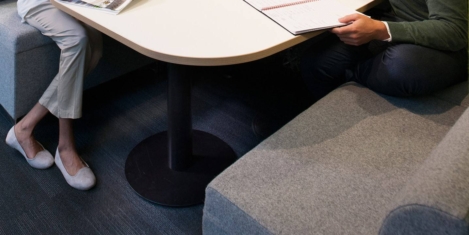To provide the best experiences, we use technologies like cookies to store and/or access device information. Consenting to these technologies will allow us to process data such as browsing behaviour or unique IDs on this site. Not consenting or withdrawing consent, may adversely affect certain features and functions.
The technical storage or access is strictly necessary for the legitimate purpose of enabling the use of a specific service explicitly requested by the subscriber or user, or for the sole purpose of carrying out the transmission of a communication over an electronic communications network.
The technical storage or access is necessary for the legitimate purpose of storing preferences that are not requested by the subscriber or user.
The technical storage or access that is used exclusively for statistical purposes.
The technical storage or access that is used exclusively for anonymous statistical purposes. Without a subpoena, voluntary compliance on the part of your Internet Service Provider, or additional records from a third party, information stored or retrieved for this purpose alone cannot usually be used to identify you.
The technical storage or access is required to create user profiles to send advertising, or to track the user on a website or across several websites for similar marketing purposes.
 Emotional intelligence or emotional quotient (EQ) is an increasingly popular buzz phrase in business and understanding its impact in the workplace is becoming crucial to employers in getting the most out of their staff. A new survey from Lee Hecht Harrison Penna claims the importance placed by people managers both on finding EQ in staff, and demonstrating it themselves. The study claims the changing mind-set of managers, who see EQ as key to the career development and professional success of their employees. (more…)
Emotional intelligence or emotional quotient (EQ) is an increasingly popular buzz phrase in business and understanding its impact in the workplace is becoming crucial to employers in getting the most out of their staff. A new survey from Lee Hecht Harrison Penna claims the importance placed by people managers both on finding EQ in staff, and demonstrating it themselves. The study claims the changing mind-set of managers, who see EQ as key to the career development and professional success of their employees. (more…)










 New research from Aon, claims that flexible benefits programmes continue to be popular within organisations, despite communication challenges and a potential impact from 2018’s
New research from Aon, claims that flexible benefits programmes continue to be popular within organisations, despite communication challenges and a potential impact from 2018’s 





















July 29, 2019
The tipping point for flexible working arrives
by James Geekie • Comment, Flexible working, Workplace design